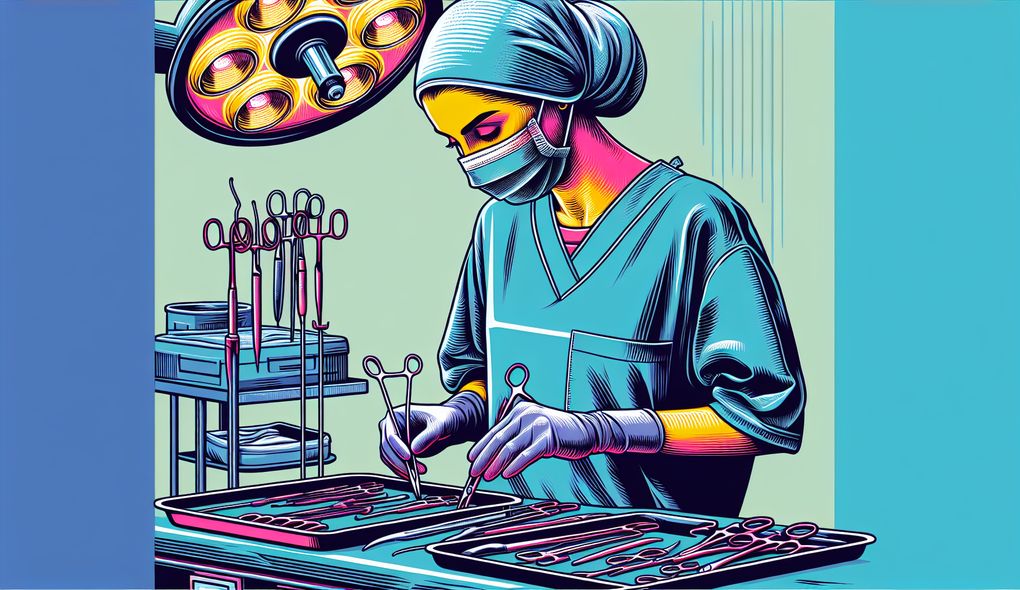Can you describe a particularly challenging surgical case you managed, and how you handled it?
SENIOR LEVEL

Sample answer to the question:
In my previous role at City General Hospital, I once managed a challenging case where a patient required an emergency laparotomy due to intestinal obstruction. It was an intense situation, but I stayed calm and focused. I prepared the OR, ensuring all instruments were sterilized and ready. During the surgery, I assisted the surgeons by promptly passing the necessary instruments and monitoring the patient's vitals. Post-op, I provided care and education to the patient for a safe recovery. It was a tough case, but my expertise helped us achieve a successful outcome.
Here is a more solid answer:
During my tenure at Southern Cross Hospital, I was part of a surgical team that faced a complex colectomy on a patient with a rare congenital defect. The challenge was ensuring minimal invasive intervention while managing the patient's delicate condition. I took a proactive role, leveraging my clinical expertise to establish a sterile field, arrange surgical tools based on the procedure's unique demands, and cross-check equipment functionality. My presence of mind helped me anticipate the surgeon's needs, seamlessly providing the right instruments. I also utilized my critical thinking skills to assist in making real-time decisions when complications arose. Post-surgery, I coordinated with the care team to customize the patient's recovery plan and performed detailed documentation. This experience was a testament to my capacity to manage complex surgical cases adeptly.
Why is this a more solid answer?
The solid answer showcases a specific complex case involving clinical skills, sterile techniques, and problem-solving. It provides evidence of strong clinical expertise, an understanding of the surgical process, and the ability to maintain a sterile environment. While it successfully demonstrates critical thinking and team collaboration, there's room for improvement in emphasizing communication skills with both the surgical team and the patient, as well as highlighting ongoing professional development.
An example of a exceptional answer:
In my five years at Northern Care Medical Center, the most challenging case was a pediatric patient undergoing a resection of a rare spinal tumor. To prepare, I engaged in significant research on the condition and reviewed past cases like ours. During the 12-hour surgery, my critical clinical skills were essential in maintaining a meticulous sterile environment and effectively managing the extensive array of specialist surgical tools. My advanced knowledge was put to the test, as I had to swiftly adapt to last-minute procedural changes without compromising the sterility or efficiency of the operation. My communication skills were key to ensuring seamless coordination with the multidisciplinary team and reconciling the surgical approach with the parents' concerns. Post-operatively, I demonstrated my commitment to education by developing a case study for the hospital's knowledge sharing database, which also contributed to my professional development. My ability to stay composed and make quick decisions under pressure played a pivotal role in the successful outcome of this high-stakes procedure.
Why is this an exceptional answer?
The exceptional answer dives deeply into a highly specific and challenging case, detailing preparation through research, application of advanced surgical knowledge, critical thinking during unforeseeable changes, and excellent communication with the team and family. It goes beyond the immediate situation by illustrating a commitment to continuing education and professional development through the creation of a case study. The candidate effectively uses their experience to demonstrate expertise in areas such as clinical skills, sterile environment management, knowledge of instruments, and problem-solving abilities. It conveys a holistic view of the responsibilities and qualifications outlined in the job description.
How to prepare for this question:
- Reflect on past surgical cases that were unique or had complex elements. Identify the actions you took, how you demonstrated clinical skills, and how you maintained a calm demeanor throughout the process.
- Prepare to discuss your communication style and how you interact with different members of the healthcare team. Provide examples of how you've collaborated effectively during surgeries.
- Think about a time when you've used your critical thinking or problem-solving skills to overcome a challenging situation in the operating room. Be ready to describe the issue and how you resolved it.
- Highlight any continued education or professional development you've pursued to stay current with surgical techniques and technology. Discuss how this ongoing learning has enhanced your performance.
- Ensure you can talk about the wider impact of your actions, including patient education, recovery planning, and the contribution to best practices or policies if applicable.
What are interviewers evaluating with this question?
- Strong clinical skills with a focus on surgical and sterile techniques
- Ability to remain calm and focused in fast-paced environments
- Advanced knowledge of surgical instruments and procedures
- Critical thinking and problem-solving abilities

